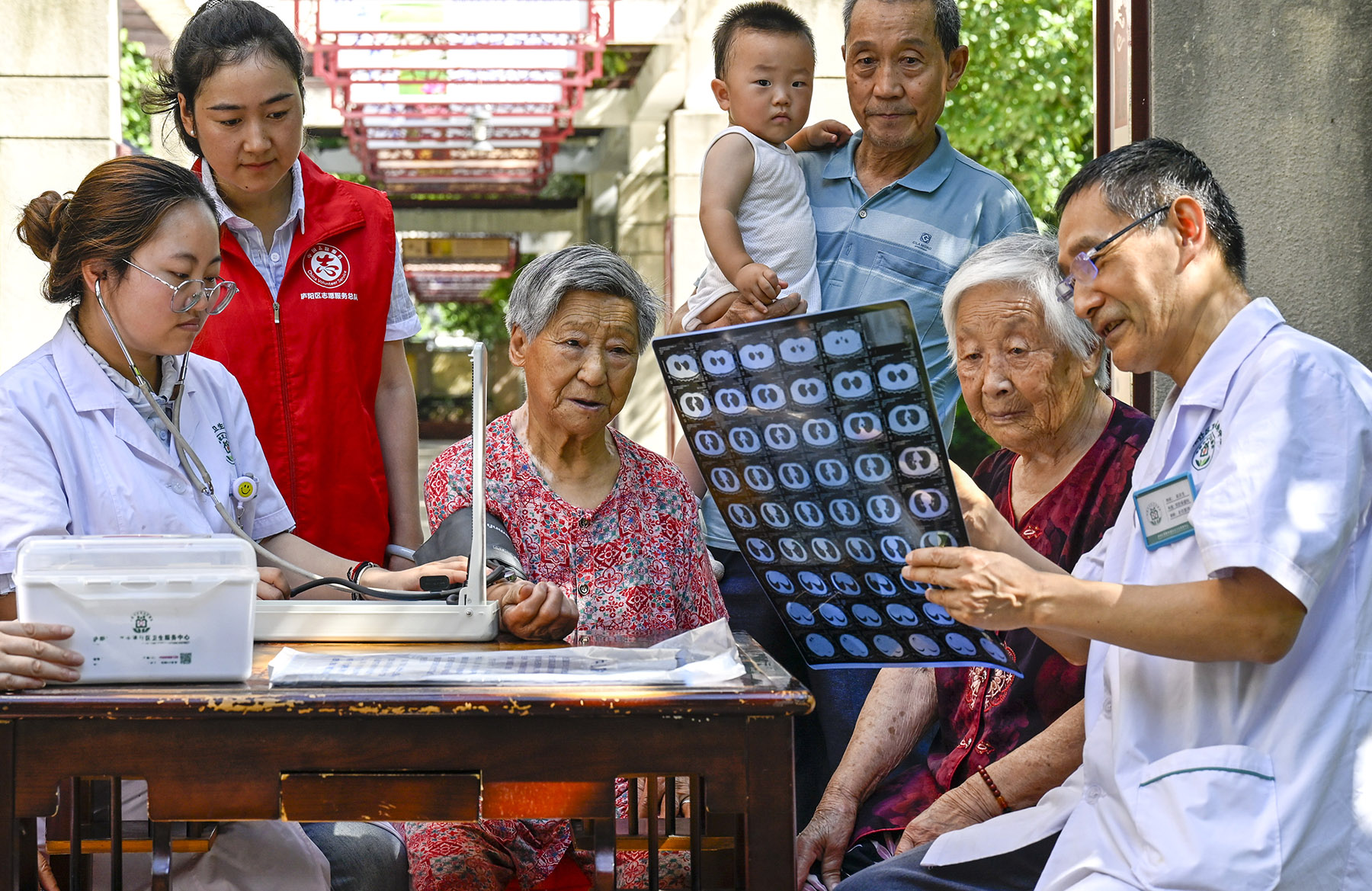Elderly, chronic patients get tailored care via contracted physicians

China plans to boost convenient access to medicines used to treat chronic diseases and bolster door-to-door healthcare services for the elderly through its family doctor contract service systems, according to a notice released this week.
Family doctors in China comprise general practitioners at grassroots medical institutions, qualified rural doctors and doctors who have retired from public hospitals.
Since 2016, the nation has had in place a system under which family physicians sign contracts with residents and provide them with basic and customized healthcare services. The system was established to curb reliance on large, overcrowded hospitals and better assist an aging population that is affected by a growing number of chronic diseases.
READ MORE: China deepens medical reform through 'health-first strategy'
On Tuesday, the National Health Commission and five other government departments released a notice calling for further improving the quality and accessibility of family doctor contract services.
According to the notice, family doctors are encouraged to provide prescription services lasting four to 12 weeks for chronic disease patients in key groups and monitor their medication. Key groups include the elderly, pregnant women, children, people with disabilities and those diagnosed with high blood pressure, diabetes, tuberculosis and other chronic illnesses or severe mental disorders.
Pharmacists at primary healthcare institutions are also encouraged to provide home-based pharmaceutical care and medicine delivery services to contracted patients.
Family doctors should issue annual health assessment reports for key groups and provide home visits or in-person follow-up services for contracted patients age 80 and above, with a focus on carrying out health evaluations and guidance on medication use.
"For elderly patients with impaired mobility or dementia, family doctors are encouraged to provide services more frequently and explore ways to provide long-term assessments or nursing services, thereby expanding the range of contracted services," it said.
The notice also called on family doctors to send out no fewer than 12 health messages each year and offer tailored education content covering matters such as exercise and diet, smoking cessation and the need to reduce the intake of oil, salt and sugar.
The notice requires major hospitals to appropriately arrange the transfer of patients initially handled by family doctors and reserve a certain number of outpatient appointment slots, including senior expert consultation slots and hospital beds for contracted residents, it added.
ALSO READ: 40% more elderly covered by public healthcare services
The nation aims to increase the coverage rate of family doctor contract services by 1 to 3 percentage points each year to 75 percent by 2035. The coverage rate among key populations should reach 85 percent.
Shen Jin, a 67-year-old retiree in Nanjing, Jiangsu province, said that his family doctor has helped him avoid purchasing faulty health-promotion devices and maintain a healthy lifestyle.
"My contract doctor devised a personalized plan to aid my weight loss, offering guidance on diet, exercise and traditional Chinese medicine interventions and reminding me to check in and post updates online every day," he said. "I have so far lost 15 kilograms."
Contact the writer at wangxiaoyu@chinadaily.com.cn


